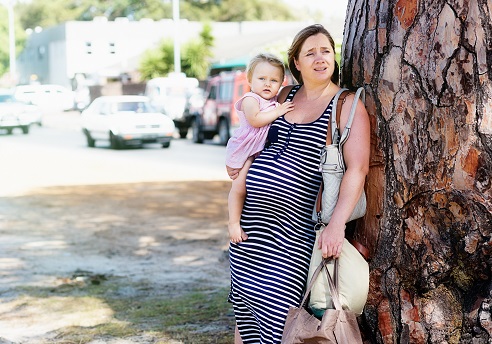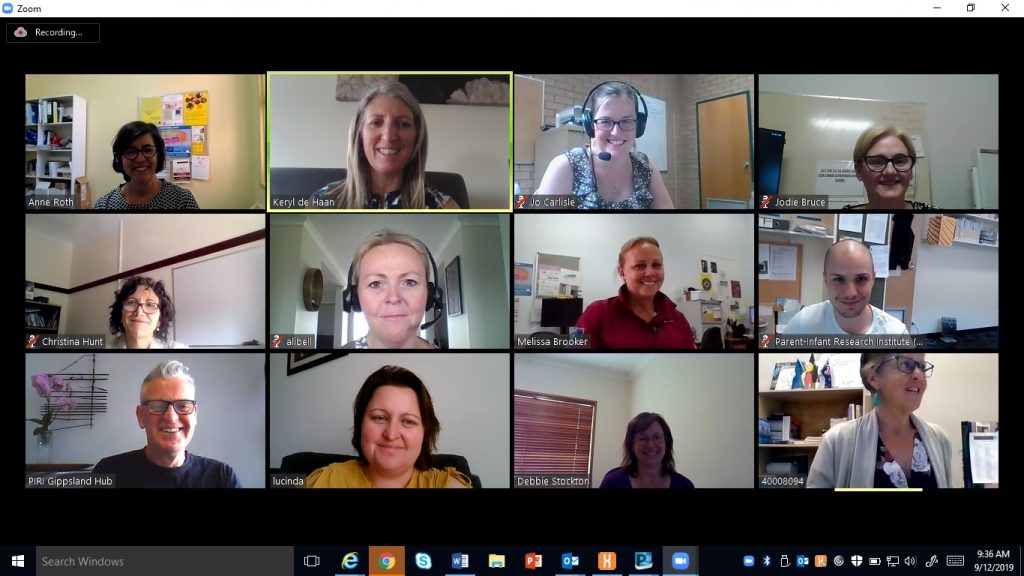Helping clinicians support pregnant women and new mums with depression and anxiety
New online programs to support mothers during pregnancy and the first year after birth, are offering hope and help for the one in five new mums who experience depression, anxiety or both.
Having a baby is a huge life transition. As mothers navigate changes to sleep, career, identity, ‘me’ time and ‘we’ time with partners, family and friends, they sometimes experience shifts in their mental health too. One in five mums are impacted by depression, anxiety or a mix of both, either during pregnancy or in the very first year after their baby is born. In regional, rural and remote areas, new mums are disproportionally affected. Living further from neighbours, higher parenting stress and lower access to parenting activities may contribute. Plus, new mums in country and remote areas have limited access to coordinated specialist services, and trained mental health workers. This lack of equally accessible support may also be exacerbated by their isolation, a fear of stigma, and not recognising the signs of antenatal or postnatal depression and anxiety.
Improving online mental health support for mums
Self-guided online intervention programs are available to help new mums. They are often designed by clinicians, who are very keen to support the mental health of mothers. Yet some new mums find it hard to jump on the website and start or continue with these programs. What are the barriers to finishing? That critical question was recently explored in a research team led by Keryl de Haan, Clinical Leader Perinatal and Infant Mental Health and Substance Use at Murrumbidgee Local Health District. Utilising NSW Health Translational Research Grant Scheme funding awarded in 2018, the research team took a deep dive into the factors that helped and hindered isolated new mothers when accessing a clinically effective online cognitive behavioural therapy program. These roadblocks and enablers were further assessed using qualitative data sourced from interviews and focus groups with new mothers, clinicians and managers.

Asking mothers what they need
“The mantra from the first round was ‘continue the conversation’,” de Haan explains. “New mums would say, ‘Don’t just offer this once. Remind us about it because we’ve got a new baby. Sometimes we’re not thinking straight, or not prioritising our self-care, or we forget what you’ve offered us. Just continue the conversation’.”
In the second phase, researchers used a participatory action research approach in extra interviews and focus groups, to engage with midwives and child and family health nurses from the Murrumbidgee and Southern NSW Local Health Districts. “Each round involved bringing back what participants told us in the previous round,” de Haan recalls. “We were categorising and packaging up all the information, asking more questions to really hone in on what they wanted and needed.”
The research team is finalising these outcomes and hopes to share the findings soon.
Boosting confidence around on-line content
Clinicians can better help new mothers if they have an appropriate understanding of what online treatments are and what options are available to consumers, found de Haan and her multidisciplinary collaborators, including Charles Sturt University, the Parent-Infant Research Institute and Tresillian Family Care Centres. In addition, new mums gain greater confidence if their treating clinician is familiar with the contents of the program they are recommending and can indicate there will be ongoing support and prompts for mums, to help them engage with these programs throughout their mental health care.
These themes inspired de Haan and colleagues to continue with this line of research to determine what clinicians need to feel confident about continuing the conversation and recommending the appropriate treatment in the perinatal stage (between pregnancy and the first year after a woman gives birth).

Top row: Anne Roth, Keryl de Haan, Jo Carlisle, Jodie Bruce.
Second row: Christine Hunt, Alicia Carey, Melissa Brooker, Andre Rodrigues.
Bottom row: Alan Gemmill, Lucinda Jay, Deborah Stockton, Sabrina Brown.
Absent: Maree Bernoth, Jeanette Milgrom.
Creating resources for clinicians
“We know these online treatments work in a controlled research environment, but involving new mums as well as clinicians (including midwives, and Child and Family Health nurses), helped us bridge the gap between theory and practice, placing it into the real world,” says Brendan Cook, Perinatal and Infant Mental Health Coordinator for the Southern New South Wales Local Health District.
de Haan and her colleagues, in collaboration with participants, are also developing a detailed educational resource for clinicians, who expressed a strong desire for additional supports to facilitate mums engaging with the programs. With so many options and little time to explore them all, clinicians need clear guidance and education on evidence-based online treatments. They also need to be a part of developing solutions and support strategies. There are now plans to flesh out the skeleton of the resource being developed before undertaking further research to determine its effectiveness.
“Doing a robust pre- and post-evaluation of the education package to determine whether it advances the capacity and skills for clinicians to recommend online treatments will be an exciting next step,” de Haan says.
The guidelines for clinicians, postcard and final project report (produced as part of the original Translational Research Grant Scheme project) are available online.
Updated 1 year ago